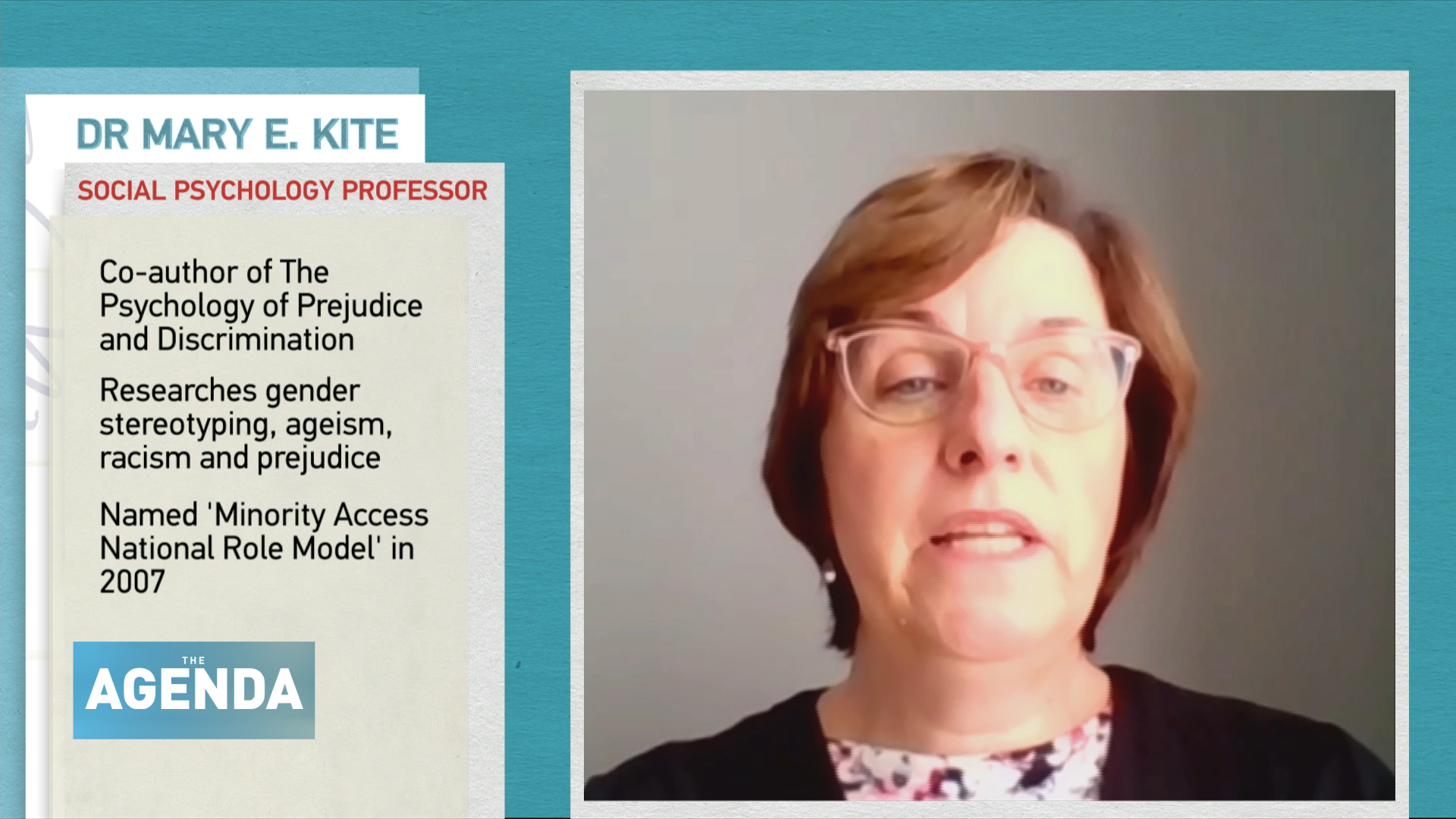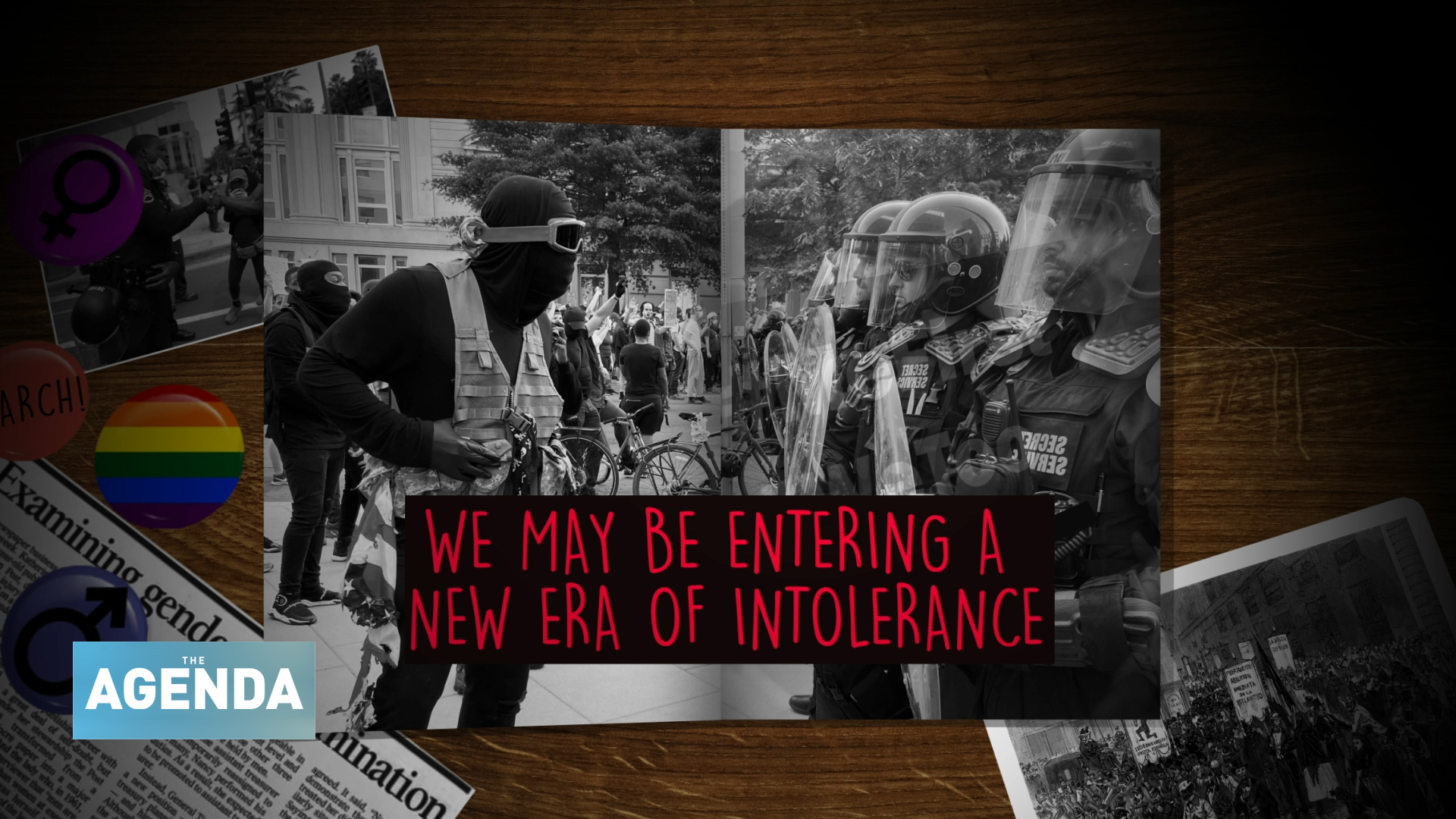06:37

What is prejudice? Can you teach people not to be prejudiced?
The Agenda with Stephen Cole investigated the subject with Mary Kite, co-author of the key university textbook The Psychology of Prejudice and Discrimination.
Kite explains how the human brain uses stereotypes as a short-cut function "to navigate the world," and that these stereotypes "come from the culture, they come from the media, they come from our past experience."
The problem comes when the stereotypes are negative and lead to derogatory assumptions. "That's the place where we can really make a lot of change," she insists, "because we can question our assumptions and change what's in that 'information box', assuming different things than we might have based on what we learned growing up, for example."
02:05

Those prejudices are pervasive and come from all around us. "Prejudice is built into our cultural systems and our cultural beliefs," Kite says. "Some of it is mirrored in the media, some of it comes from our parents, a lot of it comes from our peers."
Kite suggests that in order to become aware of prejudice, it helps to think at three different levels.
"Think about your interpersonal interactions: what you believe and what you do as a person. Think about that system level, that kind of goes under the radar" – governmental and legal manifestations of discrimination.
"The third level to think about are cultural factors that influence what we think is important. A really great example is to think about what's in an art museum. Ask how it got there, who decided what paintings are worth what amount of money, what sculptures are influential, and why those decisions were made and who made them."
As for immediate, direct action, Kite has a couple of suggestions for us all. "Really encourage people to be open to having a conversation: if you have your stereotypes questioned, just be open to that idea and not defensive," she says.
"The other thing we can do is increase our contact with members of different social groups. And so the more we interact with people who are different from us, the more we are able to adjust our stereotypes."